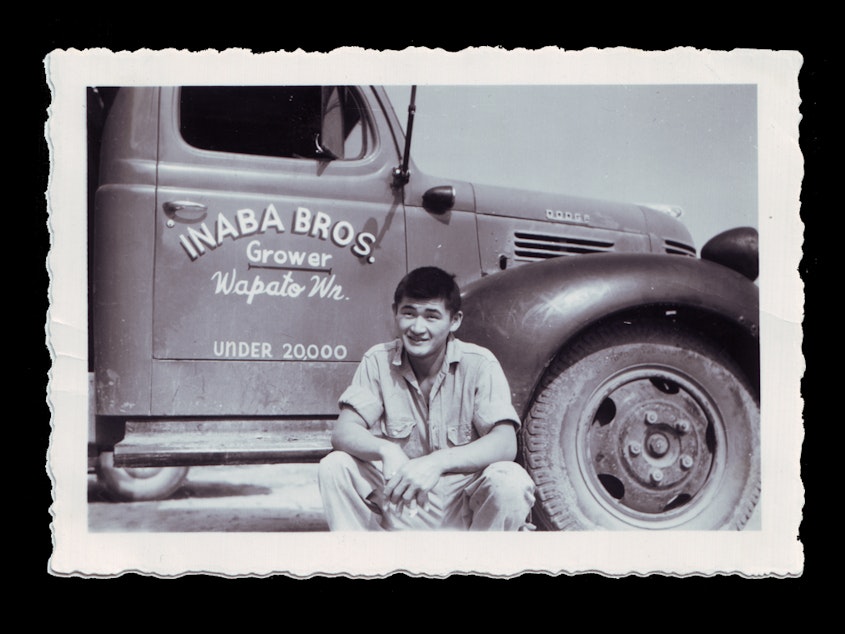Today So Far: Seattle's new rule for council members

The web version of our daily newsletter.
The Seattle City Council passed a new rule this week that went under the radar for a lot of folks. But KUOW's David Hyde caught it.
Council members are now asked to keep their speeches to 10 minutes or less. Longwinded legislators are not unique to Seattle, but kudos to the Council for noticing.
I can tell you that after covering a few city hall beats, if you ask someone on the dais to tell you the time, they'll tell you how to make a watch (and sometimes neglect to tell you the time).
To be honest, I'm a little biased toward this idea for selfish, reporter reasons. It's an issue I've seen in other cities where I've worked. I'm not naming names, but let's just say a city that rhymes with Trainbridge Byland sometimes had meetings that kept me there past midnight, searching for a quote (that was a long time ago, and I have nothing but love for you Trainbridge).
Nothing so lengthy usually happens in Seattle. But as David noted in his recent story, council members can clash when it comes to watching the clock.
Sponsored
Start preparing for the omicron wave in Washington. I've previously said that early assessments of the omicron variant indicate that is causes more mild illnesses.
But I hesitate saying that too much, because underneath that statement is a lot of nuance. Best case scenario is that omicron is mild for most people, especially breakthrough cases (severe cases will also emerge). But this variant appears to spread far greater than any previous version, meaning a lot more people will get infected.
With greater numbers come more hospitalizations and deaths of vulnerable people. And that means hospitals are at risk of being overwhelmed again; necessary health care will be pushed aside. And so on. Keep that in mind as a winter surge is likely coming — delta continues to spread and omicron is expected to outpace it (outbreaks are already occurring locally via high school sports tournaments).
King County Health Officer Jeff Duchin just said "Vaccines are the most important thing we can do to reduce our risk, but they must be used in combination with other strategies.”
We're not back to square one, but that reminder to layer strategies just feels so March 2020. With omicron, Duchin says that people should expect "many of us being infected.
Sponsored
Now being infected doesn't mean getting seriously ill." Like I said: nuance. Read more here.
When massive flooding spans the U.S.-Canada border, who is responsible for the damage? That's a debate surrounding the Sumas Prairie where many farms were recently flooded because the Nooksack River spilled over its banks on the Washington state side and flowed into Canada's farms. Some argue that the U.S. did not properly manage the river, causing the issue.
But others are quick to point out an important historical fact. Sumas was a lake for a lot longer than it was ever a prairie. Canada drained the lake to clear the way for farm land. Massive pumps have been running for nearly a century to maintain it. When flooding does happen, some say that "we are just seeing nature come back."
So again: who pays for the damage? Joshua McNichols has the story here.
There’s plenty more we’re reporting. Check KUOW.org for more headlines throughout the day.
Sponsored
Did you know?
I want to apologize to the Yakama Nation for a post I wrote in yesterday's newsletter. I feel this is a good time to remind us all that the Yakama Nation is spelled with an "a." "Yakima" with an "i" is the city and county in Washington state. It's also, I hear, a great brand of car racks. The difference in spelling is something a lot of Washingtonians learned growing up around here in the 1990s. That's when the tribe changed the spelling from "i" to "a" to more accurately reflect the pronunciation of the name. But every now and then it mistakenly slips by, even for me.
Yakama is a confederation of tribes and bands of people who have the Sahaptin language in common. They lived in various territories in the Northwest before Lewis and Clark showed up around 1805. As a result of Washington becoming a territory, a treaty, and a war, the Yakama Reservation was formed in the 1850s on the east side of the Cascades. Today, the tribe has more than 10,850 members. Its governing council has representatives from 14 tribes.
What else don't we know? Email us at hello@kuow.org.
Seattle Now podcast
Sponsored
Episode: The scientist behind the perfect Christmas tree
Christmas trees are big business here in the Pacific Northwest, and that's thanks to WSU plant pathologist Gary Chastagner, who has studied what makes the perfect tree for four decades. We take a trip to Pfaff's Christmas Tree Farm in Auburn to get the download.




